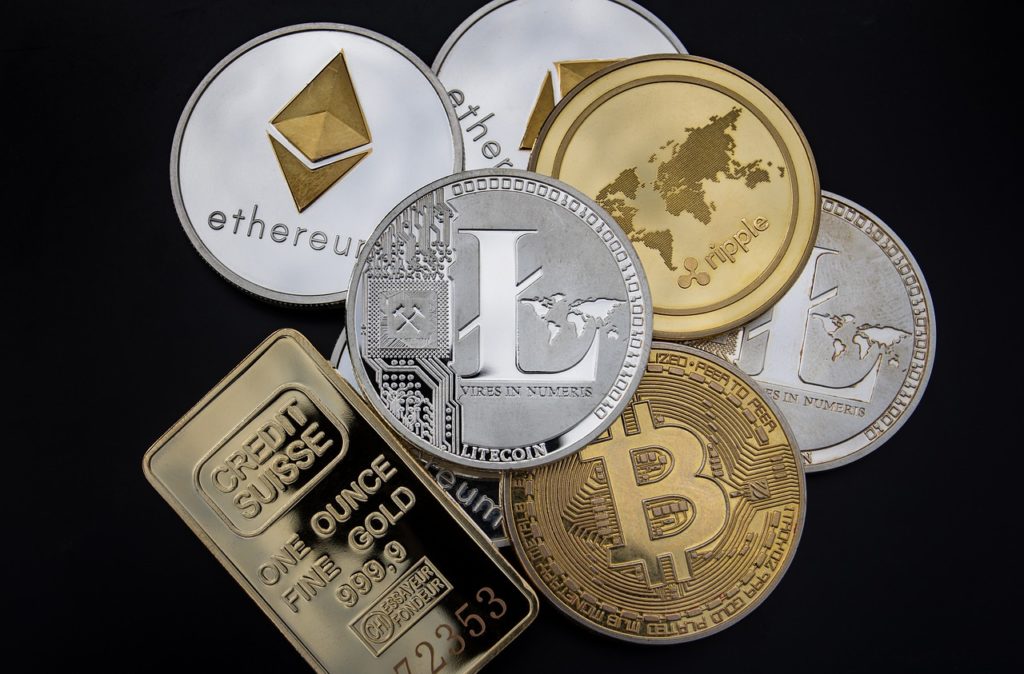Top 10 Metaverse Games That Changed The Course Of Traditional Gaming
Metaverse games are a form of immersive virtual reality (VR) or augmented reality (AR) gaming experiences that take place within a metaverse. The concept of the metaverse refers to a collective virtual shared space, where users can interact with a computer-generated environment and other participants in real-time.
In a metaverse game, players are not limited to a single virtual world or game environment but can explore various interconnected virtual spaces. These games often incorporate elements of open-world exploration, social interaction, and gameplay mechanics that allow for a high degree of user agency and customization.
One of the key aspects of metaverse games is the persistent nature of the virtual worlds. Unlike traditional video games where progress is usually saved on local devices, metaverse games store player data and progress on centralized servers. This allows for continuous gameplay and interaction with the virtual environment, even when players log off and return at a later time.
Metaverse games often feature vast and visually stunning virtual landscapes, where players can roam freely and engage in a wide range of activities. These activities can include quests, missions, puzzles, combat, crafting, trading, and more. The gameplay mechanics are designed to provide a sense of immersion and agency, allowing players to shape their experiences and make meaningful choices within the virtual world.
Social interaction is another vital component of metaverse games. Players can connect with other individuals from around the world, forming friendships, joining guilds or factions, and collaborating on various in-game activities. Real-time voice chat, text chat, and avatar customization options enhance the social experience, fostering a sense of community and shared adventure.
Metaverse games often employ advanced technologies such as virtual reality headsets, motion tracking, haptic feedback devices, and other peripherals to enhance immersion and sensory feedback. These technologies allow players to feel more connected to the virtual world and increase the level of engagement and realism.
Additionally, metaverse games are known for their evolving and dynamic nature. Developers continuously release updates, expansions, and new content to keep the game fresh and provide players with new challenges and experiences. They may introduce new areas to explore, introduce new gameplay mechanics, or host special events within the metaverse.
The concept of metaverse games has gained significant attention and popularity in recent years. Major technology companies, game developers, and investors are actively exploring and investing in the development of metaverse platforms and experiences. These companies envision a future where the metaverse becomes an integral part of our digital lives, blurring the boundaries between the physical and virtual worlds.
In summary, metaverse games offer immersive and interconnected virtual reality or augmented reality gaming experiences within a shared virtual space. They combine elements of open-world exploration, social interaction, and gameplay mechanics to provide players with vast, persistent, and dynamic virtual worlds to explore and interact with. With advancing technologies and growing interest, metaverse games are likely to shape the future of gaming and digital experiences.
Importance of Metaverse Games for the Economy
Metaverse games have the potential to bring significant economic benefits and impact various sectors of the economy. Here are some key points highlighting the importance of metaverse games for the economy:
1. Job Creation: The development and operation of metaverse games require a range of specialized skills, including game design, programming, art and animation, audio production, virtual world building, community management, and more. As the popularity of metaverse games grows, so does the demand for professionals with these skills. This leads to job creation and employment opportunities in the gaming industry.
2. Virtual Goods and Services: Metaverse games often incorporate virtual economies where players can buy, sell, and trade virtual goods and services. These can include in-game items, virtual real estate, character customization options, and more. The demand for such virtual goods can create a market with its own economy, generating revenue for developers, publishers, and players. Virtual currency systems within metaverse games can also facilitate microtransactions, providing additional revenue streams.
3. Virtual Real Estate: Metaverse games often feature virtual worlds with their own property and land ownership systems. Players can purchase virtual land, build structures, and develop their own virtual businesses or communities within the game. This creates opportunities for virtual real estate marketplaces, virtual architects, builders, and entrepreneurs to thrive. Virtual land sales and rentals can generate substantial revenue and create a digital real estate market.
4. Advertising and Sponsorships: Metaverse games can provide unique advertising opportunities for businesses. Brands can collaborate with game developers to create in-game advertising campaigns, product placements, or sponsorships, reaching a highly engaged and targeted audience. This form of advertising can be more interactive and immersive than traditional methods, allowing for deeper brand engagement.
5. Technology Development and Innovation: The advancement of metaverse games requires continuous technological innovation. Developers and researchers invest in cutting-edge technologies such as virtual reality, augmented reality, artificial intelligence, blockchain, and cloud computing to enhance the gaming experience. These advancements spill over into other sectors, driving innovation and creating opportunities for technological growth in areas like entertainment, communication, healthcare, education, and more.
6. Tourism and Events: Metaverse games with expansive virtual worlds can become tourist destinations within the digital realm. Players from around the world may visit these virtual spaces, participate in special events, and engage with the in-game community. This can have economic implications, such as increased tourism revenue, virtual event sponsorships, and collaborations with real-world businesses.
7. Cultural and Creative Industries: Metaverse games serve as platforms for creativity and self-expression. Players can create and showcase their artwork, music, fashion designs, and other forms of creative content within the game. This fosters the growth of cultural and creative industries, supporting artists, musicians, designers, and content creators. The metaverse can become a hub for cultural exchange and artistic collaboration.
8. Investment and Entrepreneurship: The growing interest in metaverse games has attracted substantial investment from venture capitalists, technology companies, and individual entrepreneurs. This influx of capital helps fund the development of metaverse platforms, game studios, and related technologies. It also provides opportunities for startups and small businesses to emerge and thrive in the metaverse ecosystem.
In conclusion, metaverse games have the potential to significantly impact the economy by creating jobs, driving innovation, stimulating virtual economies, providing advertising opportunities, fostering creativity, and attracting investment. As the metaverse continues to evolve and expand, its economic importance is likely to grow, transforming various sectors and creating new opportunities for individuals and businesses alike.
How might the Metaverse’s integration of immersive virtual experiences, blockchain technology, and its potential to revolutionize various industries challenge us to address the crucial issues of privacy, security, and inclusivity, while fostering global collaboration and…
— Good Game Hunters (@GGhuntio) August 3, 2023
Top 10 Metaverse Games that changed the course of traditional gaming
The metaverse is a rapidly growing phenomenon, and it is having a major impact on the gaming industry. In recent years, a number of metaverse games have emerged that are challenging the status quo and changing the way we think about gaming.
Here are 10 of the top metaverse games that are changing the course of traditional gaming:
- Decentraland
Decentraland is a virtual world that is owned and operated by its users. Players can buy land, build structures, and create games and experiences. Decentraland is powered by the Ethereum blockchain, and it allows users to own their in-game assets. 
- The Sandbox
The Sandbox is another popular metaverse game that is built on the Ethereum blockchain. Players can create, build, and monetize their own voxel-based experiences. The Sandbox has a strong focus on user-generated content, and it allows players to earn SAND tokens by participating in the ecosystem.
- Axie Infinity
Axie Infinity is a blockchain-based game that allows players to collect, breed, and battle digital pets called Axies. The game has become hugely popular in the Philippines, where it has helped to lift people out of poverty. Axie Infinity is a great example of how the metaverse can be used to create new economic opportunities. 
- Roblox
Roblox is a popular online game platform that allows users to create their own games. Roblox has over 40 million daily active users, and it is one of the most popular metaverse games in the world. Roblox is a great example of how the metaverse can be used to create social experiences.
- Minecraft
Minecraft is another popular online game that is often considered to be a metaverse game. Minecraft allows players to build anything they can imagine, and it has a large and active community. Minecraft is a great example of how the metaverse can be used to be creative.

- Fortnite
Fortnite is a popular battle royale game that has also become a metaverse game. Fortnite allows players to interact with each other in a variety of ways, and it has hosted a number of major events, such as concerts and live sporting events. Fortnite is a great example of how the metaverse can be used to host large-scale events.
- Second Life
Second Life is one of the earliest metaverse games, and it is still going strong today. Second Life is a virtual world where players can interact with each other, build their own homes, and participate in a variety of activities. Second Life is a great example of how the metaverse can be used to create a virtual world. 
- CryptoKitties
CryptoKitties is a blockchain-based game that allows players to collect, breed, and trade digital cats. CryptoKitties was one of the first games to use the blockchain, and it helped to popularize the technology. CryptoKitties is a great example of how the metaverse can be used to create digital collectibles.
- Blankos Block Party
Blankos Block Party is a blockchain-based game that allows players to collect, customize, and race virtual toys. Blankos Block Party is a great example of how the metaverse can be used to create a fun and engaging experience. 
- Upland
Upland is a metaverse game that allows players to buy, sell, and trade virtual properties. Upland is based on the real world, and players can purchase properties in cities such as San Francisco and New York. Upland is a great example of how the metaverse can be used to create a virtual economy.
These are just a few of the many metaverse games that are changing the course of traditional gaming. The metaverse is still in its early stages, but it has the potential to revolutionize the way we play games. As the metaverse continues to evolve, we can expect to see even more innovative and immersive games that blur the lines between the real and virtual worlds.
Risks associated with Metaverse Games
While metaverse games offer exciting opportunities, they also come with certain risks and challenges. Here are some of the risks associated with metaverse games:
1. Privacy and Data Security: Metaverse games often require players to create accounts and share personal information. There is a risk of data breaches or unauthorized access to sensitive user data. Players’ personal information, financial details, and virtual assets may be at risk if proper security measures are not in place. Additionally, in-game interactions and communications can also pose privacy concerns if not adequately protected.
2. Online Harassment and Toxicity: The social nature of metaverse games can sometimes lead to online harassment, bullying, or toxic behavior. Players may encounter offensive language, hate speech, or harassment from other participants. This can negatively impact the gaming experience and the mental well-being of individuals. Developers need to implement robust moderation systems and tools to address such issues and create a safe and inclusive gaming environment.
3. Addiction and Health Concerns: Metaverse games, like other forms of gaming, can be addictive. Excessive gameplay can lead to neglect of real-life responsibilities, social isolation, and adverse physical and mental health effects. It is essential for players to maintain a healthy balance between gaming and other aspects of their lives. Developers should also incorporate features that encourage responsible gaming and provide tools to monitor and manage gameplay time.
4. Inequality and Economic Disparities: In virtual economies within metaverse games, players may invest significant time and money to acquire virtual assets, properties, or in-game advantages. This can create economic disparities where players with more resources have an advantage over others. It may also lead to the emergence of secondary markets where virtual assets are bought and sold for real-world currency, potentially excluding those who cannot afford to participate.
5. Scams and Fraud: Metaverse games can be targeted by scammers and fraudsters who attempt to deceive players for personal gain. These can include phishing attempts, fraudulent virtual goods sales, or misleading investment schemes related to the metaverse. Players need to be cautious and aware of such risks, and developers should implement robust security measures and educate users about potential scams.
6. Intellectual Property Infringement: In metaverse games, players may create and share user-generated content, including artwork, music, or virtual items. There is a risk of intellectual property infringement if individuals use copyrighted material without permission or reproduce someone else’s creations without proper attribution. Developers need to establish clear guidelines and mechanisms to address copyright issues and protect the rights of content creators.
7. Technical Challenges and Reliability: Metaverse games rely heavily on technology infrastructure and servers to provide a seamless and immersive experience. Technical issues, such as server outages, connectivity problems, or software bugs, can disrupt gameplay, cause frustration, and negatively impact player satisfaction. Developers need to invest in robust infrastructure and perform regular maintenance to ensure a reliable and smooth gaming experience.
8. Ethical and Social Implications: Metaverse games raise ethical considerations related to player behavior, content moderation, and the impact of virtual experiences on individuals and society. Developers need to establish clear guidelines and policies to address these ethical concerns, such as preventing hate speech, tackling misinformation, and promoting responsible use of virtual worlds.
In summary, while metaverse games offer unique and immersive experiences, they also come with risks such as privacy concerns, online harassment, addiction, economic disparities, scams, technical challenges, intellectual property issues, and ethical implications. It is crucial for developers, players, and regulatory bodies to work together to mitigate these risks and foster a safe, inclusive, and responsible metaverse gaming environment.
Future of Metaverse games
The future of metaverse games is an exciting and rapidly evolving landscape that holds immense potential for transformative experiences. Here are some key aspects that shape the future of metaverse games:
1. Advancements in Technology: As technology continues to advance, metaverse games will benefit from more immersive and realistic experiences. Virtual reality (VR) and augmented reality (AR) technologies will become more accessible, affordable, and refined, allowing players to interact with the metaverse in more seamless and immersive ways. Additionally, advancements in graphics, artificial intelligence (AI), haptic feedback, and cloud computing will enhance the overall quality and depth of metaverse games.
2. Interconnected Metaverse Ecosystem: The future of metaverse games will likely involve the creation of an interconnected ecosystem. Rather than isolated game worlds, different metaverse games and platforms will be interconnected, allowing players to seamlessly transition between various virtual environments. This interconnectedness will enable shared economies, social interactions, and cross-platform experiences, providing a more unified metaverse experience.
3. Social Interaction and Collaboration: Social interaction will continue to be a fundamental aspect of metaverse games. The future will see more sophisticated social features, allowing players to form meaningful connections, collaborate on quests or activities, and share experiences with others in the virtual world. Voice chat, realistic avatars, and advanced communication tools will enhance the sense of presence and social dynamics within the metaverse.
4. User-Created Content: User-generated content will play a crucial role in shaping the future of metaverse games. Players will have increased opportunities to create and contribute to the virtual world, whether it’s through designing in-game items, building virtual structures, or creating quests and storylines. Developers will provide accessible and powerful creation tools, enabling players to leave their mark on the metaverse and fostering a sense of ownership and creativity.
5. Virtual Economies and Digital Assets: The future of metaverse games will witness the growth of virtual economies and digital assets. Players will have the ability to own and trade virtual assets, such as in-game items, virtual real estate, and unique digital collectibles. Blockchain technology may play a significant role in enabling secure ownership, verifiable scarcity, and decentralized marketplaces for virtual assets, offering players more control and economic opportunities within the metaverse.
6. Cross-Platform Accessibility: Metaverse games will become increasingly accessible across different platforms and devices. Players will have the freedom to participate in the metaverse using a variety of devices, including PCs, consoles, mobile devices, and VR/AR headsets. This cross-platform accessibility will expand the user base, encourage diversity, and promote the growth of the metaverse ecosystem.
7. Real-World Integration: The future of metaverse games will involve deeper integration with the real world. This can include real-world location-based experiences, incorporating real-time data, or connecting with Internet of Things (IoT) devices. For example, metaverse games could incorporate real-time weather conditions, real-world events, or even allow players to interact with physical objects through augmented reality overlays.
8. Cultural and Educational Applications: Metaverse games will extend beyond entertainment and gaming purposes. They will serve as platforms for cultural exchange, education, training, and skill development. Virtual classrooms, museums, art galleries, and historical reconstructions within the metaverse will provide immersive and interactive educational experiences. Cultural events, conferences, and performances may also take place in the virtual world, connecting people from different locations in meaningful ways.
In conclusion, the future of metaverse games holds tremendous potential for immersive experiences, interconnectedness, social interaction, user-generated content, virtual economies, and real-world integration. As technology advances and the metaverse ecosystem continues to evolve, we can expect metaverse games to shape the way we interact, play, learn, and create in virtual spaces, blurring the boundaries between the physical and digital realms.
Stay informed with daily updates from Blockchain Magazine on Google News. Click here to follow us and mark as favorite: [Blockchain Magazine on Google News].
Get Blockchain Insights In Inbox
Stay ahead of the curve with expert analysis and market updates.
latest from tech
Disclaimer: Any post shared by a third-party agency are sponsored and Blockchain Magazine has no views on any such posts. The views and opinions expressed in this post are those of the clients and do not necessarily reflect the official policy or position of Blockchain Magazine. The information provided in this post is for informational purposes only and should not be considered as financial, investment, or professional advice. Blockchain Magazine does not endorse or promote any specific products, services, or companies mentioned in this posts. Readers are encouraged to conduct their own research and consult with a qualified professional before making any financial decisions. The featured image used is just a creative depiction of the title and it does not intend to hurt sentiments of any person or institution. If it hurts anyone sentiments, please do not hesitate to reach out to Blockchain Magazine.

 Bitcoin
Bitcoin  Ethereum
Ethereum  XRP
XRP  Tether
Tether  Solana
Solana  Dogecoin
Dogecoin  USDC
USDC  Cardano
Cardano  Lido Staked Ether
Lido Staked Ether  TRON
TRON  Chainlink
Chainlink  Avalanche
Avalanche  Wrapped stETH
Wrapped stETH  Wrapped Bitcoin
Wrapped Bitcoin  Sui
Sui  Toncoin
Toncoin  Stellar
Stellar  Hedera
Hedera  Shiba Inu
Shiba Inu  WETH
WETH  Polkadot
Polkadot  LEO Token
LEO Token  Bitget Token
Bitget Token  Bitcoin Cash
Bitcoin Cash  Litecoin
Litecoin  Hyperliquid
Hyperliquid  Uniswap
Uniswap  Official Trump
Official Trump  USDS
USDS  Wrapped eETH
Wrapped eETH  Pepe
Pepe  NEAR Protocol
NEAR Protocol  Ethena USDe
Ethena USDe  Aave
Aave  Aptos
Aptos  Internet Computer
Internet Computer  WhiteBIT Coin
WhiteBIT Coin  Monero
Monero  Ethereum Classic
Ethereum Classic  Ondo
Ondo  Mantle
Mantle  POL (ex-MATIC)
POL (ex-MATIC)  Cronos
Cronos  Render
Render  Dai
Dai  MANTRA
MANTRA  Algorand
Algorand 




